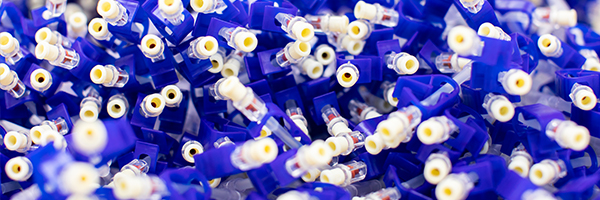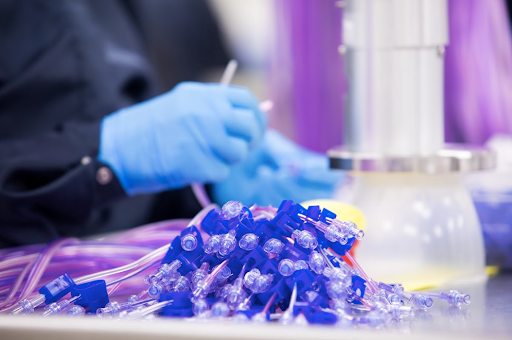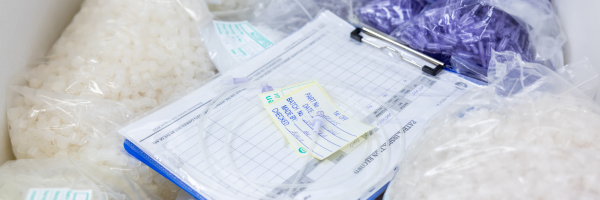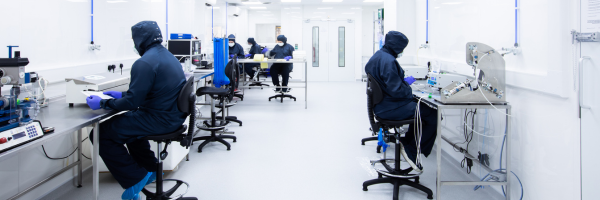
The new European Medical Device Regulation (MDR) came into force on 26th May, 2020, bringing with it the most radical overhaul of the medical device regulatory framework that the medical device industry had seen in decades.
The primary objective of the MDR was to improve the quality and safety of medical devices in the European Union. It introduced a series of major changes, including to medical device classification, CE marking and requirements relating to clinical data and other key areas.
MDR replaced the Medical Device Directives (MDD). Medical devices CE marked under MDD were given a grace period: they can be sold in Europe until 25th May 2025. After this date they must be certified according to MDR to remain on the market.
Why it is critical to be ready for the new Medical Device Regulation
It is critical that medical device manufacturers are ready for the MDR. Companies that fail to prepare properly risk losing certifications and market access, which will damage brand performance and bottom lines.
We have put together this short guide to the main changes that MDR introduced.
Key changes under the new Medical Device Regulation
- Regulations rather than directives. MDR is more binding in terms of its implementation. This should reduce inconsistency in how it is applied across the European Union, which should benefit manufacturers by making portfolio management more straightforward. However, some variation may still occur, in particular with regard to high-risk devices.
- Restructuring of notified body role. The mandate of notified bodies is changing significantly. In their redefined role, there will be more emphasis on policing rather than on partnering. As a result, the notified body sector is undergoing a major reorganisation, with some bodies closing. As a manufacturer, it is critical that your notified body is offering certification under MDR. If not, an urgent change in regulator is required.
- Reorganisation of device classification. The definition of medical devices changed under MDR, including a broadening of what constitutes a device. This means classification changes, in terms of both the classification of previously non-medical devices as medical devices and the reclassification of existing devices. It is essential that manufacturers are aware of these changes and are ready to act on them.
- Stricter regulatory requirements. Requirements for technical documentation and clinical data and criteria relating to the demonstration of equivalence will be significantly stricter under MDR. In addition, manufacturers will have to have a post-market monitoring plan in place. Furthermore, files submitted under MDR will be reviewed as if they are first submissions and will be assessed according to MDR requirements. Manufacturers need to adjust their systems accordingly and expand them where appropriate.
- Authorised representatives for non-European Union manufacturers. The MDR requires non-European Union medical device manufacturers to have an authorised representative. Authorised representatives will be required to supply competent authorities with all the necessary technical files and appropriate certifications, and provide reports relating to any incidents. The move is designed to expand accountability.
- Unscheduled manufacturer audits. Under MDR, unscheduled manufacturer audits will be routinely carried out. At present, the frequency of these audits is expected to be once every three years. However, in the case of adverse events, the audits are likely to be more frequent. Manufacturers should have the systems and personnel in place to manage these audits.
- Stricter supply chain oversight. The introduction of MDR will bring with it greater scrutiny of manufacturer supply chains, including supplier audits. Crucially, the burden of standard and responsibility will fall much more on manufacturers, which will have to bear a greater share of costs and penalties. As a result, supply-chain risk assessment is vital, as is the inclusion of activities relating to these new practices in formal supplier agreements.
- Greater traceability and transparency. Under MDR, every medical device will need a unique device identifier: this is designed to enhance post-market safety monitoring. In addition, from May 2022, comprehensive data relating to medical devices will need to be uploaded to the European Database on Medical Devices. In both cases, the information relating to these systems will be publicly available and easily accessible. Manufacturers need to ensure that they are ready to comply with these new rules.
Brexit, the application of MDR and the consequences for UK manufacturers
How the MDR will apply to UK medical device manufacturers following the end of the Brexit transition period remains to be seen. The UK government has previously indicated that it will follow MDR, but the current tone of comments regarding adherence to European Union regulations suggests that this stance is far from assured.
As such, UK medical device manufacturers would do well to put systems in place that will enable them to trade with European Union markets as a non-member country that is not a signatory to MDR.
How a contract manufacturer can help you manage the shift to MDR
The new MDR will enhance the safety and effectiveness of medical devices, but its introduction presents medical device manufacturers with a number of challenges, most notably relating to costs and market access.
Assistance with compliance with MDR is one of the benefits of working with a contract manufacturer of medical devices. The right medical device manufacturing partner will provide expert advice on operating under the new regulation, guiding you through the process of change and helping ensure that you comply with the new rules.
If your medical device contract manufacturer doesn’t offer this guidance and the related services, it’s time to reconsider your choice of partner.
Meridian Medical is an established and experienced contract medical equipment manufacturer, specialising in a wide range of medical device design, development and supply services.
To find out more about how Meridian Medical can help you with your medical product design and manufacture, get in touch today by filling out our online form or contacting us on 01903 732344 or info@meridian-medical.com.

Author: Andrew Wootten, Quality and Regulatory Manager
Andrew Wootten has been at the forefront of Meridian Medical’s quality and regulatory functions for over a decade. With a career in quality management that began in 1989 and extensive experience in the medical device sector since 2002, Andrew is a seasoned expert. He holds a City and Guilds certificate in Quality Assurance, a diploma in Quality Management from BSI, and is a certified internal auditor for ISO 13485, ISO 9001, and ISO 14001. Andrew ensures our regulatory compliance and drives the company’s commitment to excellence in quality and safety, making him a trusted authority in the industry. His deep understanding of global regulatory challenges and unwavering dedication to quality assurance position him as a key figure in delivering safe, compliant and top-quality medical devices.



